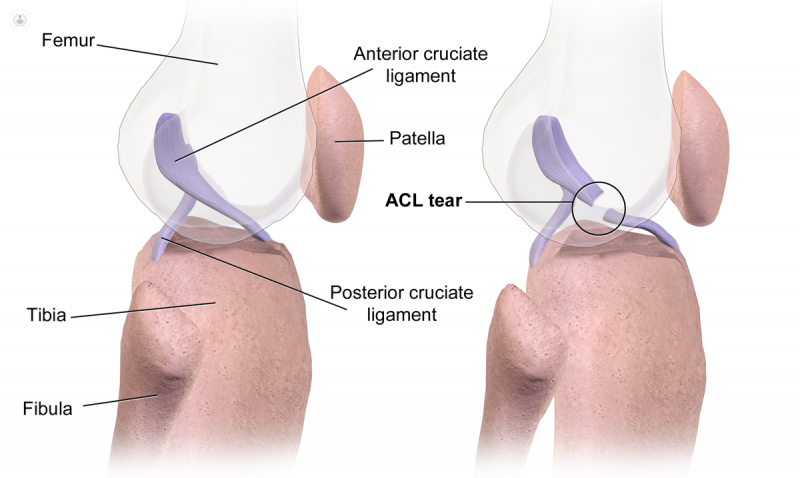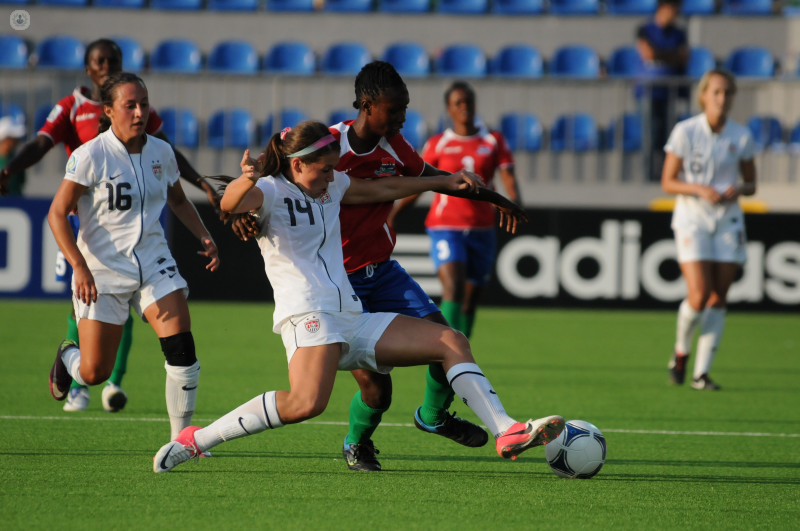How do I know if I’ve torn my ACL?
Written by:Anterior cruciate ligament (ACL) injuries are one of the most common knee injuries and have been the bane of many an athlete’s careers. This ligament helps to maintain the stability of the knee when rotating and pivoting. ACL tears can be highly problematic for the athlete involved, with many high-profile footballers being sidelined over the years because of them. Orthopaedic surgeon Mr Gordon Shepard explains why.
The signs that you have torn your anterior cruciate ligament (ACL) are so classic that it is extremely surprising that any injuries are missed. However, despite the story and signs being so obvious, unfortunately in many people a torn ACL is initially misdiagnosed as one of several other problems.
How does an anterior cruciate ligament tear happen?
ACL tears are a common sports injury. The normal way of injuring your ACL is when you suddenly change direction, normally when running. This can be due to boots getting stuck in the turf or playing surface or merely due to the severity of the turn. The knee that is injured is normally the “planted” one and the opposite one to the way you are turning that is the left one if you are cutting to the right and vice versa. This is called a valgus rotation injury. It is normally not a contact injury. If you wish to see the mechanism of injury in all of its gory glory seek out the video of Michael Owen rupturing his ACL in the 2006 World Cup.
Other common ways of sustaining the injury are on coming down from leaping for a header in football or a twisting injury due to your foot getting stuck. Netball is a sport that could have been designed to rupture ACLs! The rules mean that the players have to stop suddenly on receiving the ball while at the same time pivoting to try to pass the ball away, thereby forcing the knee into valgus and rotation.

What are the symptoms of an ACL tear?
Most people hear a crack or pop, which is actually the ligament rupturing. The majority of people with this injury are unable to take any further part in the game they are playing and the knee starts to swell within seconds to minutes. This is due to bleeding into the knee from the ruptured ligament. Most injured athletes will require assistance from the field of play and will normally end up in the local emergency department.
So, in summary, if you’ve twisted, heard a crack or pop, been unable to play on and the knee has started to swell within minutes, you need to seek the help of a specialist knee surgeon as it extremely likely you have ruptured your ACL – and don’t take no for an answer!




